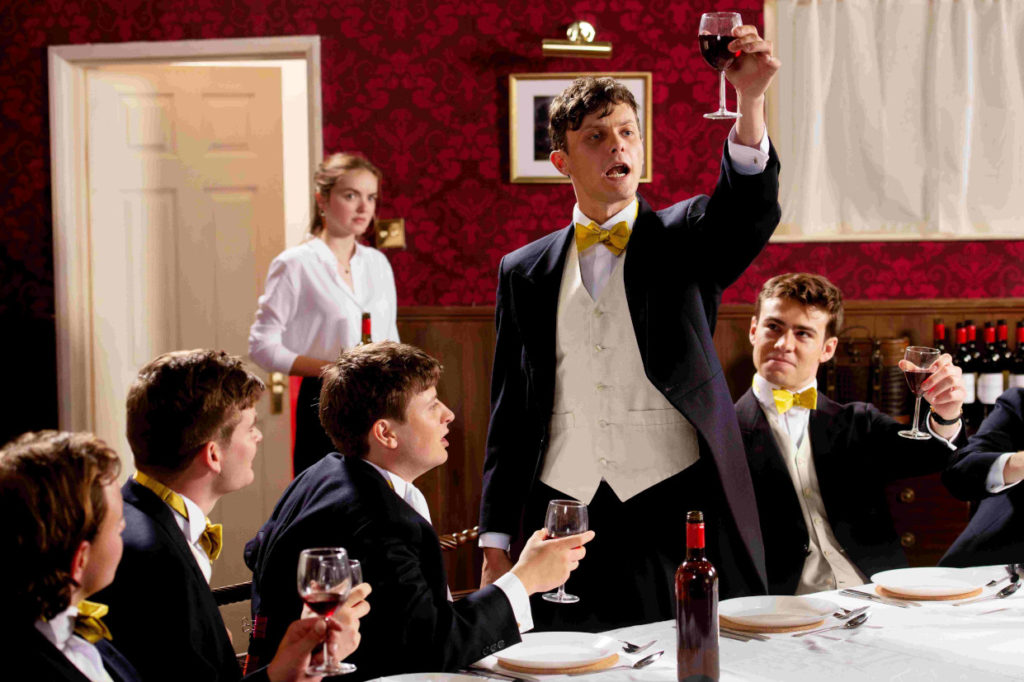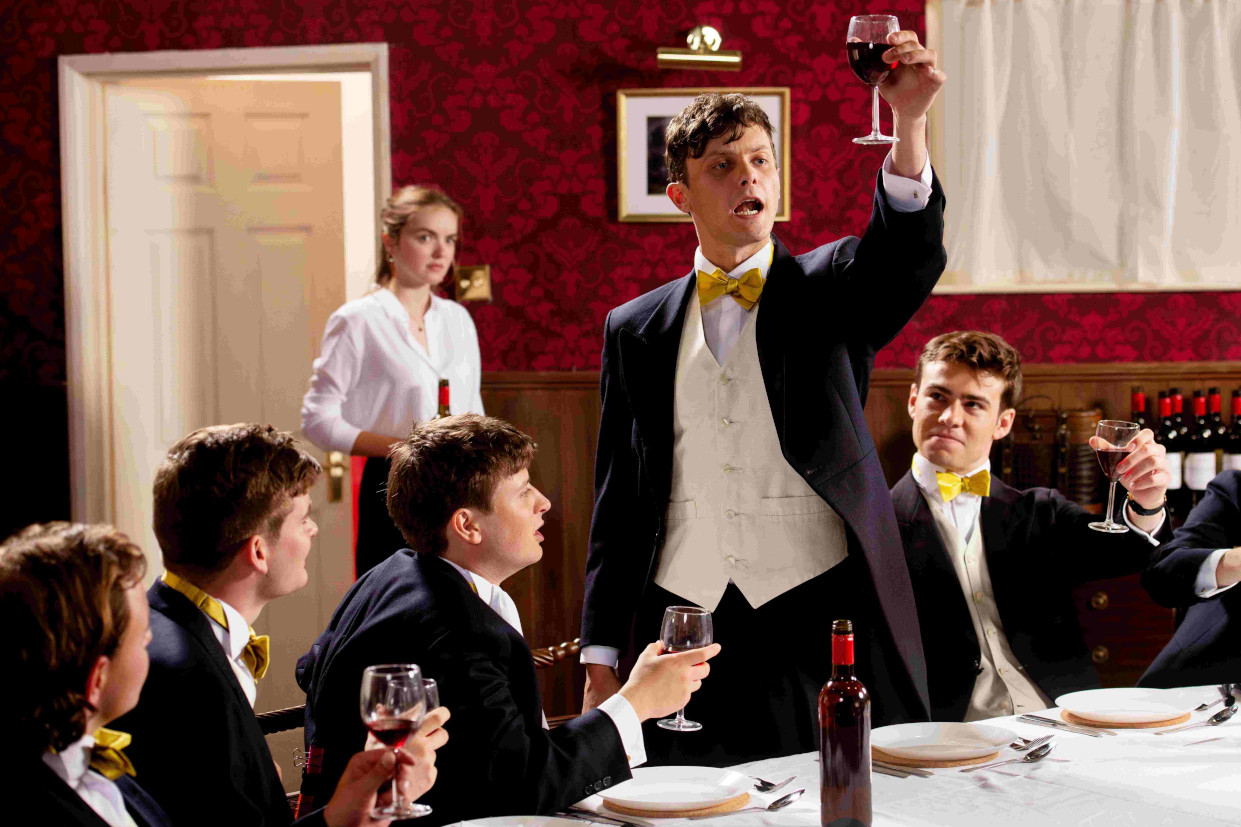
This is a weird week to be reviewing this kind of play. On stage, a group of entitled young men deny their privilege and refuse to accept the consequences of their actions; in parliament … well, they’re not particularly young, but otherwise…
The fictional characters in Posh are the same people as the real life characters in British parliament. Laura Wade’s play is a thinly-veiled look at the Bullingdon Club, the covert, exclusive Oxford dining club; a club in which, famously, two of our last three Prime Ministers have been members (not, god-forbid, the woman, of course). Wade’s Riot Club is a hedonistic secret society, meeting at an Oxfordshire pub (they’ve been banned from anywhere within a certain radius of the city centre), where anything might happen, but they’ll be able to pay their way out of any situation.
Many of the individual events in the play are part of the history of the real Bullingdon Club – the temporary bans placed on the club after particularly riotous behaviour making it into the press, the destruction of property and the on-the-spot cash payments to recompense for it, the hiring of sex workers to entertain the members, the powerful social connections of the group’s members. However, Wade’s excellent writing makes this a more complicated narrative than simply a straightforward lampooning of the privileged classes.
Posh largely takes place at a single dining event, bookended at the start and the end in the private rooms of a member of the House of Lords and former Riot Club member. This framing device serves to highlight the sense of power and the strength of social connections that grow out of this elite society. There are some fascinating internal politics between the members. Miles and Ed are new recruits, finding their feet within the club; Ed’s older brother is a former member, so he is trying much too hard to live up to ‘the legend’. Guy and Dimitri are vying for the club presidency when James graduates. James has one foot out the door into the working world, and is beginning to feel uncomfortable with what the club represents and how they behave (although he is easily swept along under pressure from the others). The other boys all look down on Dimitri, who is the wealthiest in the group, but who comes from ‘new money’ and therefore is a natural outsider. Alistair goes to a dark place when he’s drunk, transitioning from the ebullient centre of attention at the start of the play to the man who works himself into a fury about the state of society, culminating in his shout of ‘I am sick to fucking death of poor people!’ Each of the actors bring a really top performance – it’s not many plays where you could have ten characters on stage at once, each with discernible personality traits and easily individually recognisable by the audience.
When the Riot Club interacts with other people – the pub landlord, his daughter, the sex worker they try to hire for the evening – the interactions are ugly, patronising, and ultimately violent. One of the hardest scenes to watch is when Rachel, the landlord’s daughter, is forced to kiss one of the boys. For a play with not many lines for women, there’s a really fascinating undercurrent throughout the play about dating, sex, and consent, which seems even more relevant now, in a post-#MeToo world than it did when the play premiered in 2010.
I can’t recommend Posh highly enough – go and see it (although schedule in some political rant time at the pub afterwards, you’ll need it)! ★★★★★ @BookingAround at Oxford Playhouse 5th September 2019


